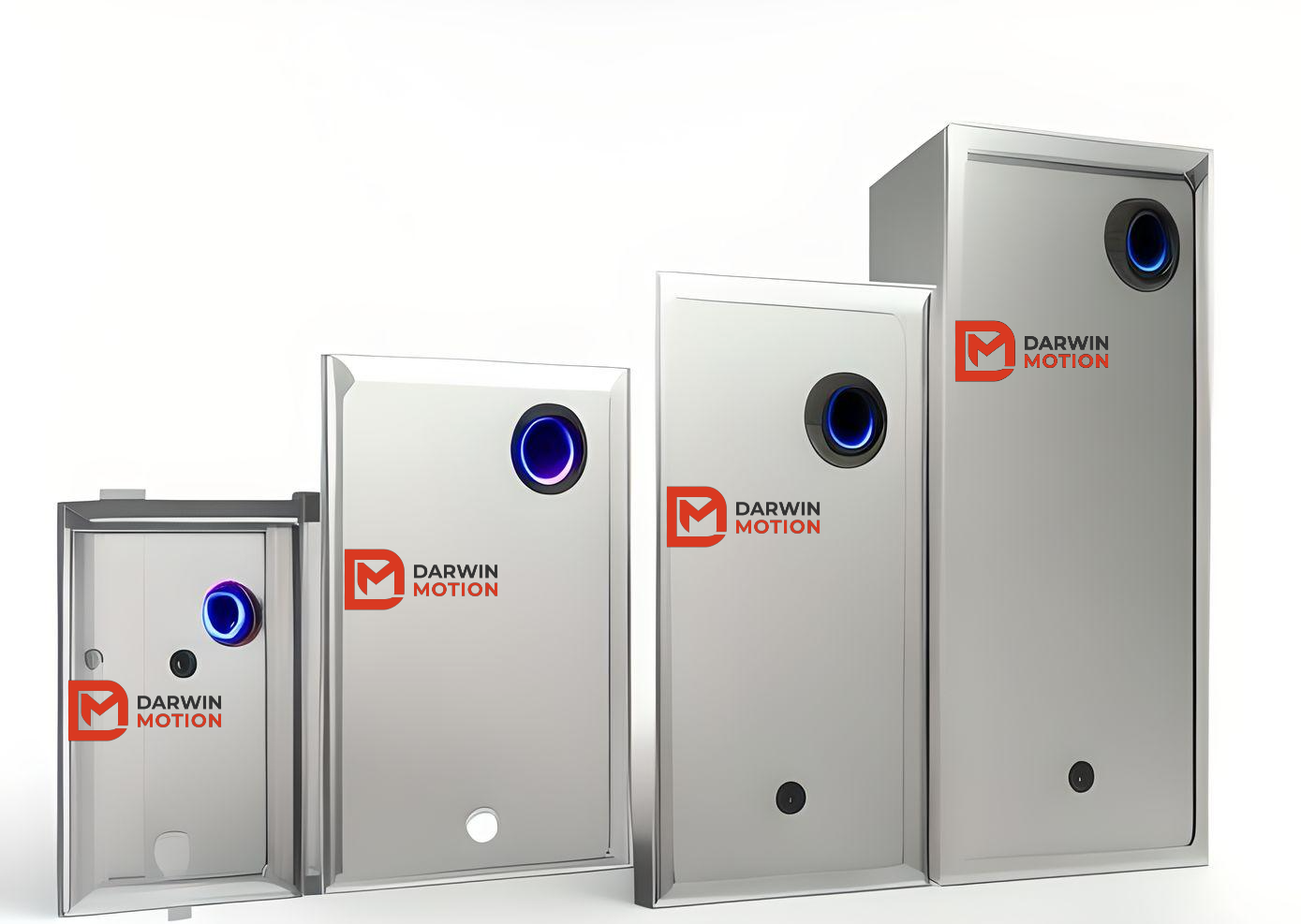Posted on 11th May 2024

In the ever-evolving landscape of industrial automation, the integration of advanced technologies has become paramount for enhancing efficiency, productivity, and overall performance. Among these technologies, Darwin Motion AC drives stand out as a cornerstone for driving innovation in industry and machinery automation. From manufacturing plants to agricultural facilities, AC drives play a pivotal role in optimizing processes and maximizing output. Let's delve into how AC drives are revolutionizing industry and machinery automation.
AC drives, also known as variable frequency drives (VFDs) or variable speed drives (VSDs), are electronic devices designed to control the speed, torque, and direction of electric motors. They achieve this by varying the frequency and voltage of the electrical power supplied to the motor, allowing precise control over its operation. AC drives are versatile, compatible with various types of motors, including induction motors and synchronous motors, making them suitable for a wide range of industrial applications.
One of the primary benefits of AC drives is their ability to improve energy efficiency. By adjusting the speed of motors to match the required load, AC drives prevent motors from running at full speed when it's unnecessary, thereby reducing energy consumption. This not only lowers operational costs but also contributes to sustainability efforts by minimizing carbon emissions.
Moreover, AC drives enable smoother starting and stopping of motors, reducing mechanical stress and wear on equipment. This results in extended equipment lifespan and decreased maintenance requirements, further enhancing operational efficiency and reducing downtime. In industries where continuous operation is critical, such as manufacturing and processing plants, the reliability offered by AC drives or high frequency drive is invaluable.
Another significant advantage of AC drives is their ability to provide precise control over motor speed and torque. This level of control allows operators to fine-tune processes according to specific requirements, whether it's maintaining consistent production speeds, adjusting for varying loads, or implementing intricate motion profiles. With AC drives, manufacturers can achieve higher levels of accuracy and repeatability in their operations, leading to improved product quality and consistency.
Furthermore, AC drives offer flexibility in adapting to changing production demands. They enable quick adjustments to motor speed and performance parameters, allowing for seamless transitions between different operating conditions. This agility is particularly advantageous in industries characterized by fluctuating demand or frequent product changes, as it enables rapid reconfiguration of machinery and production lines to meet evolving requirements.
The versatility of AC drives makes them indispensable across a wide range of industries and applications. In manufacturing, AC drives are utilized in various processes such as conveyor systems, pumps, fans, and compressors, where precise control and energy efficiency are essential. In the automotive industry, AC drives power assembly line equipment, robotic arms, and vehicle testing rigs, enabling streamlined production workflows.
In addition to manufacturing, AC drives find applications in sectors such as HVAC (heating, ventilation, and air conditioning), water and wastewater treatment, mining, agriculture, and renewable energy. Whether it's optimizing ventilation systems in commercial buildings, controlling irrigation pumps on farms, or regulating the speed of wind turbines, AC drives contribute to improved performance, reduced energy consumption, and enhanced reliability across diverse applications.
In conclusion, Darwin Motion AC drive represent a cornerstone of industry and machinery automation, offering unparalleled efficiency, precision control, and flexibility. By optimizing motor performance and energy usage, AC drives help organizations boost productivity, reduce operational costs, and maintain a competitive edge in today's dynamic business environment. As technology continues to advance, AC drives will undoubtedly play an increasingly vital role in shaping the future of industrial automation, driving innovation, and empowering industries to achieve new levels of efficiency and sustainability.